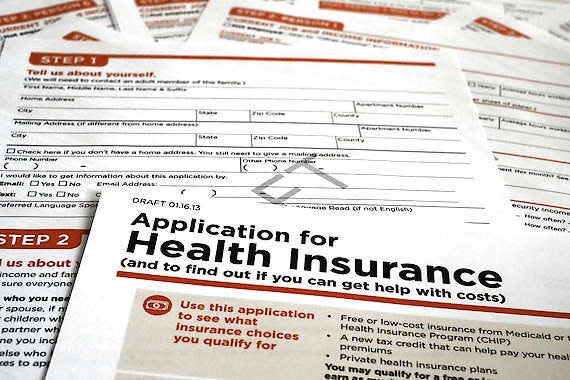Opinion: Texas children at risk as pandemic-era Medicaid coverage ends
Last week, the Texas Health and Human Services Commission released an updated report revealing that more than 500,000 people—about 10 percent of total program enrollment—lost Medicaid coverage in May.
In April, Texas started to redetermine people’s eligibility for the Medicaid program, a process which was put on pause for three years during the COVID-19 pandemic. Some coverage loss is expected, as some individuals retained their Medicaid coverage despite becoming ineligible, but these numbers suggest that many people could be at risk of inappropriately losing coverage.
As a condition of receiving enhanced Medicaid funding during the pandemic, states were prohibited from terminating coverage during the majority of the federally-declared public health emergency. Normally, states “redetermine” eligibility for the Medicaid program once a year, a process in which many people fall through the cracks if they do not provide requested information or respond to the state in a timely manner. Prior to the pandemic, research found that nearly half of all uninsured children in Texas were eligible for Medicaid or its subsidiary program for kids, the Children’s Health Insurance Program. Bureaucratic barriers built into the Medicaid and CHIP enrollment and recertification processes contributed to the state having the highest uninsured rate (11.8%) among kids in the nation.
Because Texas is among the ten states that haven’t expanded their Medicaid programs, most of the growth in Medicaid enrollment during the pandemic was driven by children. And while many adults who were kept on the Medicaid rolls during the pandemic undoubtedly transitioned to other sources of coverage or are just no longer eligible for the Medicaid program, because of Texas’s stingy rules, eligibility for kids changes less. Most of the children who maintained coverage because of the pandemic protections are likely still eligible for Medicaid or CHIP.
By putting redeterminations on pause, kids were able to keep their coverage without facing administrative burdens that oftentimes lead to disruptions in coverage.
States’ approaches to the “unwinding” of pandemic-era Medicaid protections are varied. The Centers for Medicare and Medicaid Services has given states up to 12 months to “return to normal” operations and complete all redeterminations. Texas is among the half of states that are prioritizing completing redeterminations among those who are likely ineligible, as opposed to a “time-based approach,” or prioritizing redeterminations based on length of time since the last renewal.
But, according to HHSC’s most recent data, the overwhelming people who lost their coverage weren’t actually found to be ineligible (96,000 enrollees); most people (nearly 405,000 enrollees) had their coverage terminated for “procedural reasons,” like failure to respond to requested information and/or successfully complete the renewal process. In these situations, HHSC didn’t have enough information to say whether someone was eligible or not.
Texas has made significant investments in preparing for the resumption of redeterminations. HHSC has expanded the number of data sources used for renewal, to try to increase the number of renewals it can automatically process without requiring enrollees to provide updated income information. It has ensured that enrollees can submit needed information through multiple modalities (like phone, mail, online, and in-person). And, HSSC has built an Ambassador program and developed relationships with community-based organizations to help enrollees maintain their coverage.
Despite these efforts, HHSC’s recent numbers suggest a need for the state to rethink its strategy. Texas is doing two things that might exacerbate the number of people who slip through the cracks. They are front-loading redeterminations (doing more now than later) and they are focusing on people who they think are ineligible, who they can’t automatically renew, first. As a result, state eligibility workers, hospital case workers, and other people whose job is to help people navigate this process are likely overburdened.
A different approach would make it easier to ensure that the people who need help can get it.
Gabriella Aboulafia, a Houston native, is a PhD student in Health Policy at Harvard University.

This article originally appeared on Austin American-Statesman: Opinion: Medicaid changes put Texas children at risk after COVID-19
